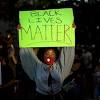Quinnipiac professors recall Jimmy Carter's visit to campus in 2007

NEW HAVEN — Mohammad Elahee has seen U.S. presidents in person before. But with former President Jimmy Carter, he got a chance to make small talk and take a picture with him.
“I am originally from Bangladesh, so he asked me where I was from,” said Elahee. “He also told me that just before coming to Quinnipiac, he was in Bombay in India, which is next door to Bangladesh, and he was sharing with me his experience in Bombay.”
As the 39th president entered home hospice care last week, two Quinnipiac University professors recalled when the former commander-in-chief came to campus, a visit both said put the university and Hamden on the international map.
Carter visited Quinnipiac Sept. 26, 2007, to deliver a lecture for the Albert Schweitzer Institute, an organization of which he’s a honorary advisory board member. He also received the institute’s first humanitarian award from the university. The visit was led by then-Executive Director David Ives.
“He was a very gracious guest,” Elahee, an international business professor, said. “I remember after the event was over, every single person who wanted to take pictures with him, he did take pictures with them.”
At the event, Carter spoke about the danger of a nuclear holocaust and The Carter Center's international role in nuclear safety. The lecture marked the 50th anniversary of Schweitzer's call for an end to nuclear weapons.
Sean Duffy, current executive director of the institute, said meeting Carter that day was "very special" to him because Carter was the president when Duffy was in high school, the age he said he started to pay attention to national politics.
"I really cared about his administration and the the challenges of his administration were ones that were really sort of shaped my coming of age period," said Duffy, who's also a political science professor. "I admire him for what he has represented, who he has become and what he's done since he's been president."
For him, Carter is a "humanitarian," an "election monitor" and a person who "built houses for lower-income people."
Even though Duffy said the institute has hosted other big names as speakers, Carter probably had the most recognition in the local area. He said it was "really pivotal" because people started to pay attention to the institute and the university.
During Carter’s presidency, he made at least three visits to Connecticut.
Carter joined the former Gov. Ella T. Grasso’s fundraising for her second term in Hartford Oct. 28, 1978, participated in the New England Regional Meeting of the National Retired Teachers Association at Hartford Civic Center Sept. 12, 1979, and visited Newington Children’s Hospital Oct. 16, 1980, according to his presidential diary archive.
Carter came to New London in June 1948 for six-month submarine officer training school. He was stationed in the city in July 1951 as senior officer for the Navy’s first new ship since World War II ended. His third child was born about a year later in New London.
When hearing the news of the 98-year-old ex-president entering hospice care, Elahee said it was sad but it also shows a side of his personality.
“President Carter was always pragmatic and he always does the right thing,” he said. “It shows that he also knows how to leave this world in a graceful manner.”
For Duffy, he said it was a mixed feeling between “sorrow, nostalgia, deep admiration and grateful" for the fact the he's been in the public service for so long.
"He's 98 years old and up until very, very recently, he has still mattered to the world," Duffy said. "He has still made an impact with his life, so I think obviously about what the world will lose when he does pass."
As an international business scholar, Elahee said Carter doesn’t always get the credit for “a lot of good things he initiated” such as the U.S.-China relationship (Carter granted China full diplomatic recognition in 1979), which he said helped deregulate and revitalize the private sector.
He said people tended to remember him as “a foreign policy failure,” referring to the Iran hostage crisis and the Sandinistas situation in Nicaragua.
“And globally speaking, I don't think there is any other president of the USA in the last 50 years or 60 years who comes even close to President Carter in terms of global acceptability, credibility, respectability,” Elahee said.
chatwan.mongkol@hearstmediact.com


 United States
United States Argentina
Argentina  Australia
Australia  Austria
Austria  Brazil
Brazil  Canada
Canada  Chile
Chile  Czechia
Czechia  France
France  Germany
Germany  Greece
Greece  Italy
Italy  Mexico
Mexico  New Zealand
New Zealand  Nigeria
Nigeria  Norway
Norway  Poland
Poland  Portugal
Portugal  Sweden
Sweden  Switzerland
Switzerland  United Kingdom
United Kingdom 




























